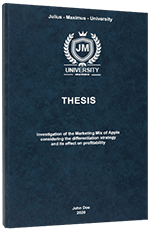
If you are a college or university student, you have probably come across the term grounded theory (GT) in the course of your study or qualitative research. However, despite the grounded theory’s immense popularity, few students seem to understand how this theory works, including its key elements and concepts. This article outlines everything you need to know about this systematic theory.
Grounded Theory - FAQs
Grounded theory coding is a concept that involves labelling and categorizing data that has been systematically collected and analysed. It simply means classifying different data segments that are similar using short names or codes that simultaneously summarize or account for a particular set of data.
Coding is a core process in grounded theory as it forms the basis of conceptual abstraction and reintegration of data. There are two main types of coding in a grounded theory study, substantive coding and theoretical coding.
Substantive coding involves conceptualizing the empirical data of the area or subject of study. It uses data in which the theory under study is grounded. Substantive coding includes open and selective coding and the researcher here works with raw data whereby they break it down, analyse and sort it systematically.
On the other hand, theoretical coding is a more focused phase that uses initially formed significant codes to sort, analyse, synthesize, integrate and organise large volumes of data. In theoretical coding, substantive codes are utilized as hypotheses of a theory.
Grounded theory studies follow several rules which make them different from other types of researches. The purpose of this study governed by multiple rules is to give a researcher the freedom to generate new ideas and concepts in explaining patterns of behaviour.
Unlike other study methods, it does not depend only on pre-research literature reviews but instead integrates bits of actual data that has been collected and analysed systematically. The GT aims at giving room for the development of new concepts that may challenge or strengthen the existing conceptual information.
Phenomenology and grounded theory have a lot of similarities and can often be presented together. However, they have some slight differences which make them distinguishable.
Phenomenology originated from philosophy under the influence of Martin Heidegger and Edmund Husserl. It seeks to explore and describe experiences by collecting data from individuals who have been through such experiences. Data collection here is limited to interviews and a concept known as “lived experience.”
On the other hand, the grounded theory emerged from sociology primarily influenced by Barney Glaser and Anselm Strauss. Just like phenomenology, it aims to explore and describe the phenomenon under study, but in this case, the methods of data collection are expansive.
Other than interviews, it utilizes various methods such as observations, diaries, past literature, images and intensive research. Researchers here adopt a technique known as “constant comparison” to compare all the data available as they look for contradictory cases that might challenge existing theories in a bid to strengthen them. This theory of study can be complex and challenging.
This method is ideal for use when little is known about the subject under study. It helps a researcher construct an explanatory theory with the aim of uncovering a process inherent to the area of study. It generates a theory that is grounded on the collected and analysed data.
No professional experience is needed to conduct this theory. It is considerably flexible, accommodating researchers from different fields who explore unique phenomena using extensive data sources. It forms a clear basis for researching used by both experienced and inexperienced researchers such as university students.
Definition: Grounded Theory
Grounded theory is a methodology that involves systematic collection and analysis of data to explain certain behavioural concepts. This theory is grounded in actual data, meaning that the analysis and development of theories is done after a researcher has collected all the essential information. Sociologists Barney Glaser and Anselm Strauss developed this theory in 1967 to legitimize qualitative research. This systematic methodology has over the years been largely but not exclusively applied in qualitative research conducted by social scientists.
in Your Thesis
What are the Different Methods?
The typical methods that form the framework for this systematic theory are:
- Purposive sampling: This directs the collection or generation of data. Here, a researcher purposively selects the participants and data sources that can answer the questions.
- Constant comparative analysis: An analytical process used for coding and category development.
- Memoing: Involves writing memos which act as storehouses for the ideas generated.
- Collecting data: Gathering of relevant data through methods such as interviews, focus groups, questionnaires and surveys.
- Coding: Labelling and categorizing the systematically collected and analysed data.
- Initial coding: Fracturing raw data to identify patterns of similarities and differences.
- Theoretical sampling: For the development of theoretical categories.
- Intermediate coding: Builds on the initial coding by transforming basic data into more defined concepts for theory development.
- Advanced coding: Defines initial concepts that will be concepts in representing the theory.
- Theoretical sensitivity: Offers insights into what is significant and meaningful for theory development.
- Grounded theory: The results of a study that are communicated in a clear set of concepts.
Example for Grounded Theory
A simple example to help you understand this methodology is a grounded study on victimizing bullying in schools. Here the researcher starts by identifying participants through purposive sampling. The participants here should be students who have been through this ordeal.
They then administer relevant data collection techniques, for example, through interviews, questionnaires, videos and focus groups, among others. After data collection, they proceed with sampling and coding to generate a grounded theory. The aim of this study may be to identify the phases of bullying and its impacts on the affected individuals.
University students using the grounded theory methodology are faced with the problem of developing a research proposal and theoretical framework that is in line with the academic paper requirements. However, here are tips on how you can use GT in academic writing:
- Developing the research questions: In this theory, the research process gives rise to the research questions. As a researcher, you first enter the field without narrowed down the research question. You formulate them later as you progress with the research process.
- Unlike other methods of study, when using grounded theory in your academic writing, the literature review phase is delayed until later in the study. This is to prevent you from imposing existing knowledge into your current study.
Like other studies, ensure that you are keen and attentive to details when writing your academic paper using this study methodology.
In a Nutshell
- Grounded theory is a key tool of research that forms the basis for the development of new concepts.
- It is a powerful qualitative research tool that observes and tries to account for human behaviour.
- It is a valuable tool in strengthening existing factual concepts by identifying contradictory information from the data collected.
- This theory is a versatile research tool that can be applied to all fields of study and students do not need any experience to use it. It is ideal for university and college students beginning their research.
- This theory follows a set of rules which makes it different and more detailed than other classic research methodologies.

